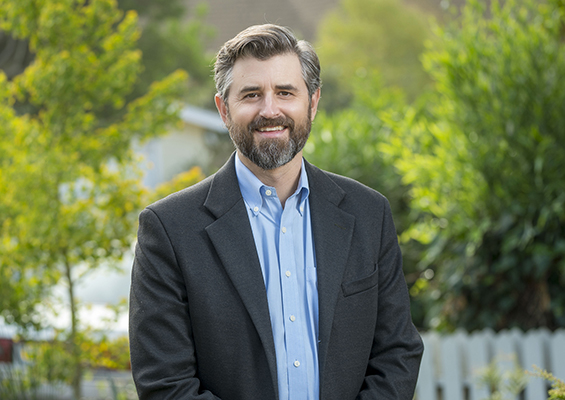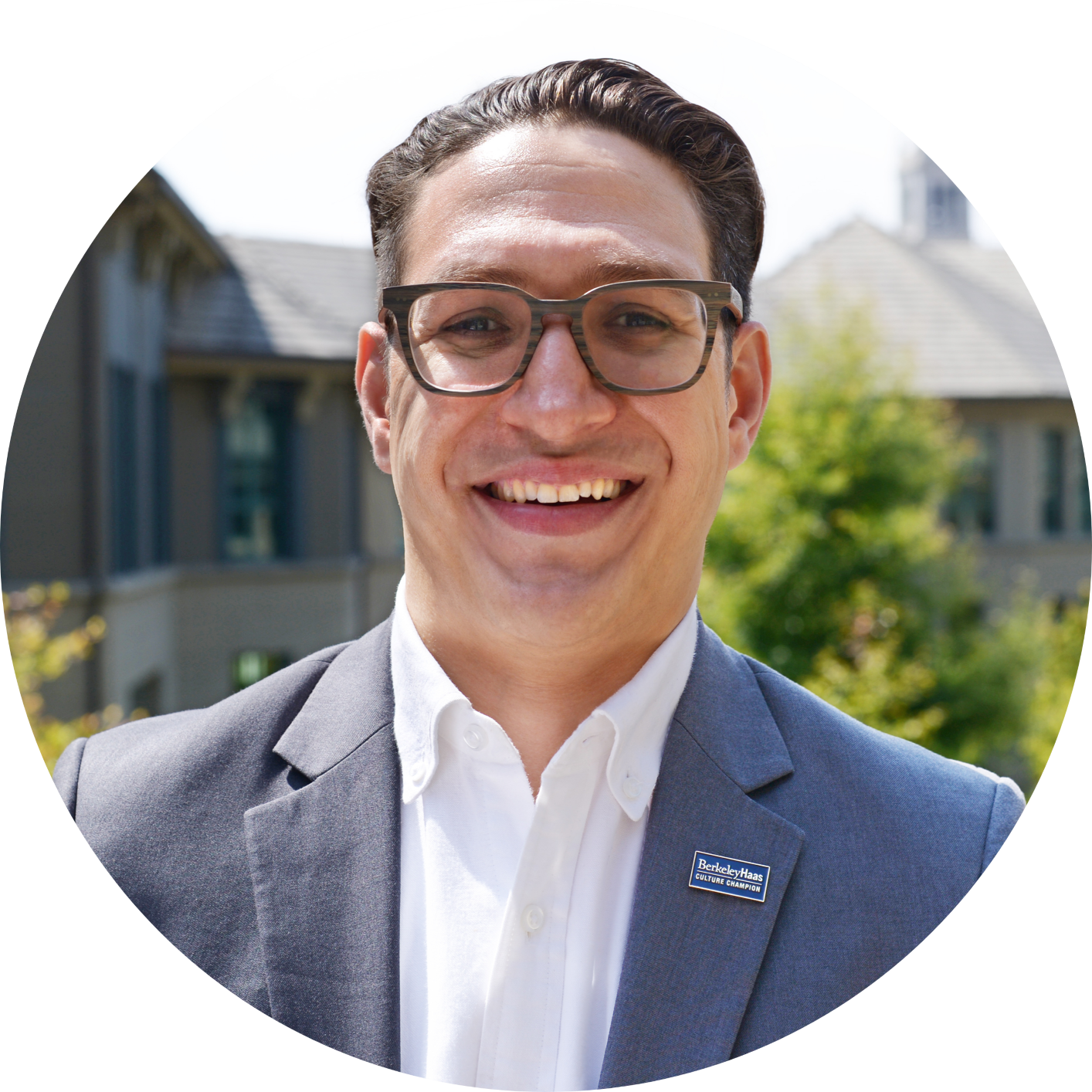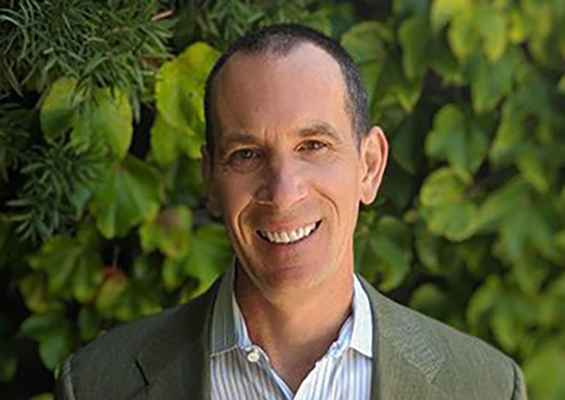Cameron Anderson, who holds the Lorraine Tyson Mitchell Chair in Leadership & Communication, values Berkeley Haas students for their socially minded goals and their ability to pose “interesting” questions in class. Those questions have prompted Anderson’s research on topics from the psychology of power to self- and interpersonal perception. A winner of the Earl F. Cheit Outstanding Teaching Award, he also consults with leading organizations and corporations worldwide.
Why does the class Power & Politics engage you and your students so much?
I love teaching the course primarily because it helps Haas MBA students accomplish their goals. This is particularly meaningful for me because I have long believed that Haasies are different from MBAs at other top business schools. The students here tend to be kinder, more humble, more intellectually curious, and have more socially minded goals. My calling in teaching Power & Politics is to help Haas students achieve their more socially minded goals.
I’ve been studying power for more than 25 years and the material still fascinates me, so I love talking about it with students. I want them to find the material interesting too, so I try to keep the class as engaging as possible. That means mixing it up by using cases, exercises, simulations, videos, self-assessments, peer feedback, and such.
I hope that mix, and my obvious passion about the subject, is what engages students. And I think they enjoy the course much more than if we only used one learning tool like case analysis.
To gain power you don’t have to sell your soul."
What is a favorite classroom exercise or assignment?
My favorite exercise is one where students role-play, in groups, an influence exercise while being videotaped. They give each other feedback at the end of the exercise, and in the days that follow they read the feedback their groupmates gave them and watch the recording of themselves. It’s a real eye-opener!
The combination of seeing yourself on video and receiving direct feedback from others about your behavior is an amazing learning experience, even if it is somewhat painful to be in such a vulnerable position. Students often report that they had little awareness of the way they come across to others.
For example, many students learn that they come across as unassertive and that they could be much more assertive to push for their agenda; others learn that they inadvertently come across as closed-minded to the view of others. Learning things like this in the safe confines of an MBA class sparks the beginning of really meaningful growth.
What do you hope your students will take away from your classes?
Maybe the most important takeaways are the ones I talk about in the very first class of Power & Politics: a) that you need power and influence to be effective, and b) to gain power you don’t have to sell your soul.
The first takeaway means it’s not enough to have the right idea or to be the smartest person in the room. You also need the power to push for your ideas and the political capital to gain buy-in and support from others. That being said, the second takeaway emphasizes that you can achieve power and exert it in ethical, morally upstanding ways.
How does your teaching reflect your research and vice versa?
They absolutely feed into each other! First, students routinely ask questions that inspire research ideas. In one class just two weeks ago I probably said, “That’s a great question for a research study!” three different times in a 15-minute span. Some of the questions students ask are truly dissertation-worthy. Students’ questions have become increasingly sophisticated and insightful over the years.
Second, my research definitely informs the takeaways in class. A good example is a study we conducted recently that looked at whether being a jerk—to use a technical term—helps people get ahead in their careers. That is, does it help you to be selfish, deceitful, and aggressive? Do nice people finish last? It turns out that being a jerk is totally unhelpful. Jerks simply don’t have a leg up in the pursuit of power. They end up with the same power as nice people. Based on that study and others like it, I hammer that point home over and over in my class: Being a jerk does not give you an advantage, so there is no point in being one!
What new course would you design for the MBA curriculum?
I can think of two that would be really fun to design and teach. The first would be on personal growth, or how people can develop new personality traits, habits, skills, and abilities. The science on personal growth has exploded in the past 10 to 15 years and has provided solid evidence that you can transform yourself, even in dramatic ways, as long as you are motivated and dedicated to doing so.
The second course would be on emotional intelligence. That is, how people can read others’ emotions, how to respond to those emotions, how people can understand and gain awareness of their own emotions, and how to regulate their own feelings so that they respond to situations more effectively.
The expertise and insight your professors bring helps deepen and enhance your MBA journey. By selecting a top school with top-notch professors, you maximize your experience.
Read more from the Take 5 with a professor series:
- Laura Kray reveals the skill MBAs want in their core curriculum
- Kellie McElhaney talks equity fluency, courage, and vulnerability
- Lucas Davis shares hardest economic concept for MBA students to grasp
- Jenny Chatman gives three benchmarks of an effective organizational culture
- Jennifer Cohen talks equitable and inclusive leadership
- Clark Kellogg shares how he teaches design thinking, creativity, and innovation
- Dave Rochlin talks flipping the classroom: MBAs learn by doing
- Maura O'Neill says narrow-mindedness is the enemy of innovation
- Bill Pearce says most important trait of a successful marketer is empathy









